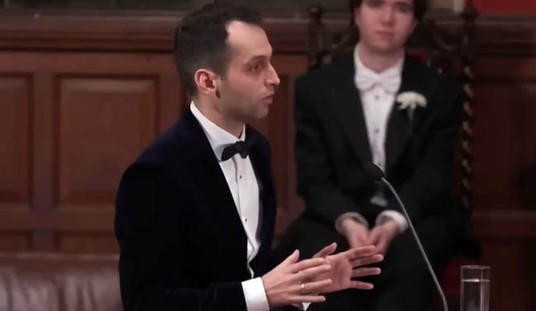The travel ban wars continue, but there’s an old saying about if at first you don’t succeed…
Travel Ban 2.0 was launched this week to immediate protests from the usual list of suspects, but something seems to be different. The media was thrilled to announce fairly quickly that the revised order had been “dealt its first court setback,” but once you dug past the headline you found out that it really only applied to one specific family. (Reuters)
A federal judge in Wisconsin dealt the first legal blow to President Donald Trump’s revised travel ban on Friday, barring enforcement of the policy to deny U.S. entry to the wife and child of a Syrian refugee already granted asylum in the United States.
The temporary restraining order, granted by U.S. District Judge William Conley in Madison, applies only to the family of the Syrian refugee, who brought the case anonymously to protect the identities of his wife and daughter, still living in the war-torn Syrian city of Aleppo.
The real goal for Trump’s detractors was to relive their glory days from the first ban and have the entire thing brought to a screeching halt. For that they went back to their go-to man on the scene, Seattle U.S. District Court Judge James Robart. As you will recall, he was a favorite media figure in the last fight because he was a Bush appointee, so obviously this couldn’t be any sort of partisan chicanery, right? Unfortunately for the complainants, history didn’t repeat itself last night and the judge went the other way. (The Hill)
A U.S. federal court on on Friday refused to apply the emergency stay that halted President Trump’s first travel ban to his revised executive order, Reuters reported.
Seattle U.S. District Court Judge James Robart, who was appointed by former President George W. Bush in 2003, said lawyers from the states that opposed the measure needed to file more extensive court papers.
A group of states, led by Washington and Minnesota, successfully challenged Trump’s January executive order on immigration, and Robart issued a temporary restraining order to halt the policy nationwide as lawsuits proceed. Robart’s decision was upheld by a federal appeals court.
This is turning out to be a twisted road which is following a path eerily similar to the one Ed Morrissey seemed to predict yesterday morning. The people who managed to get the ban revoked the first time, specifically Washington Attorney General Bob Ferguson in this case, were doing victory laps when the new order was released, saying that Trump had been forced to back down and revamp it. But in asking to have the same temporary restraining order applied to this version he would have to convince Judge Robart that it hadn’t been revamped at all. This proved too great of a feat for Ferguson in this case.
We’re also left to break out the popcorn and wait to see what the 9th Circuit will do with it this time. They also now have a bit of precedent hanging over their heads. The first time around they were quite happy to agree that Robart had gotten it right and identified the flaws in the order, confirming his decision to issue the restraining order. Now, during the inevitable appeal, they will be forced to deal with the same judge’s decision indicating that the weaknesses in the first order have been addressed. It will definitely smack of hypocrisy to a certain degree if they turn around and overrule him on precisely the same arguments they upheld him on only a few weeks earlier.
If that effort fails, Trump’s opponents have other shots waiting to be fired but they don’t look as strong. Opponents in Hawaii have filed their own lawsuit claiming the ban would hurt tourism industry, and businesses interests in the Aloha State. We’re venturing into some less well trod territory there. Rather than a constitutional argument about the rights of certain individual travelers, this one sounds like some sort of protest seeking to protect free commerce. But when those interests (specifically the tourism dollars of non-citizens) are stacked against the President’s prerogative regarding national security, the argument seems to be weak tea by comparison. As usual, it will all depend on the appeals process so you’d best keep your hands inside the ride and your seat-belts fastened for a while longer yet. This ride is far from over.










Join the conversation as a VIP Member